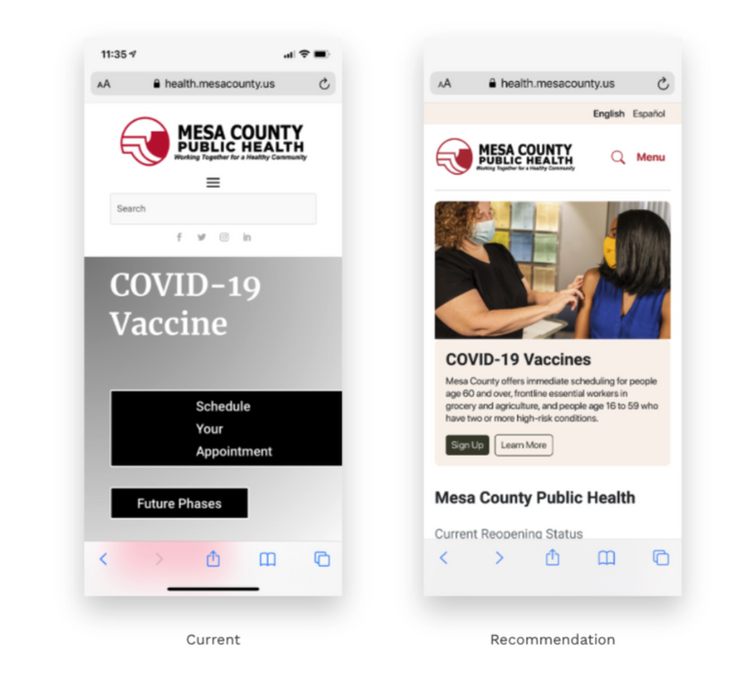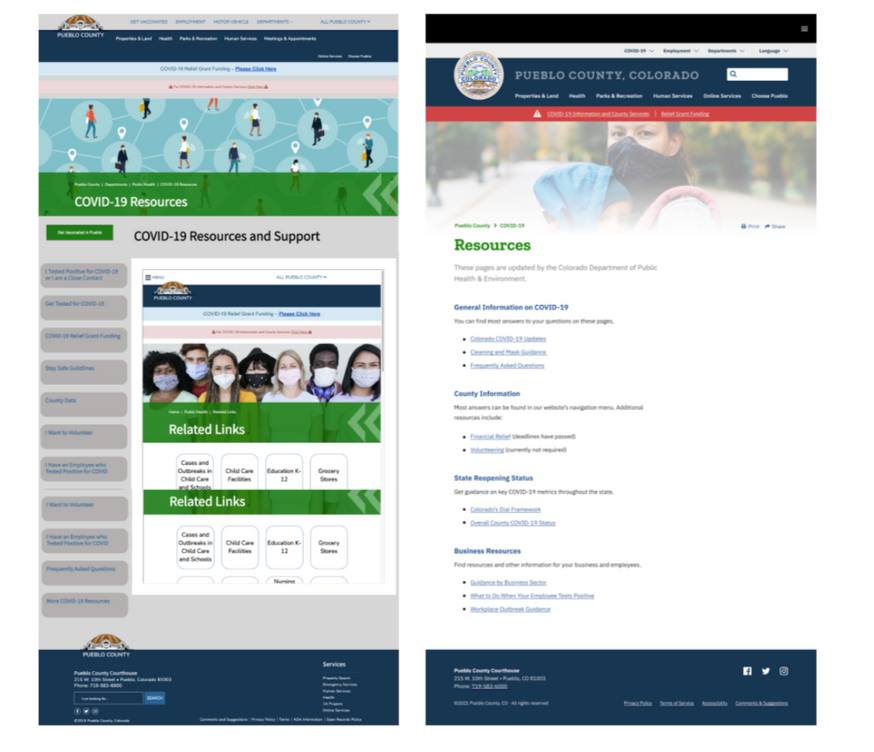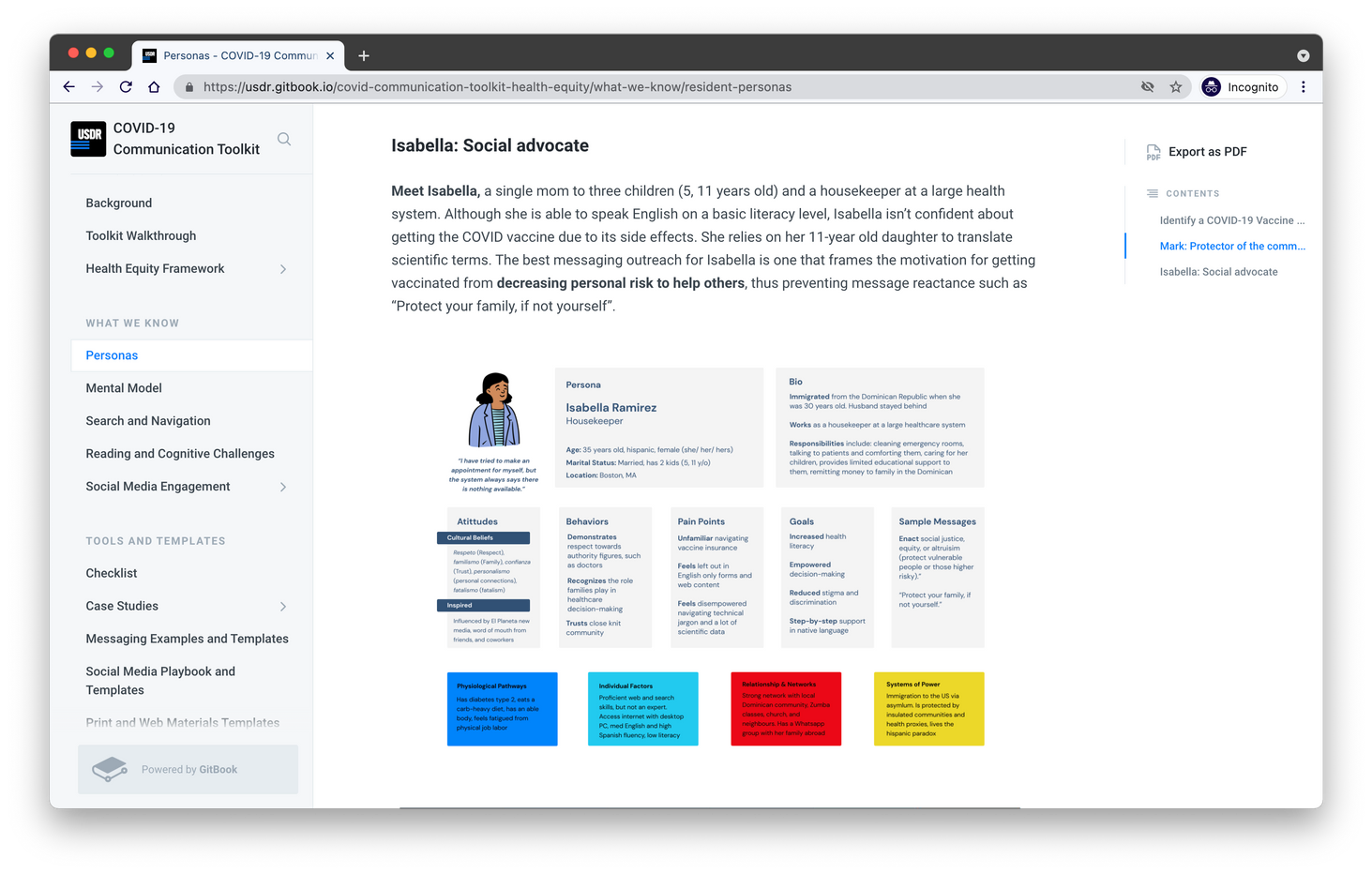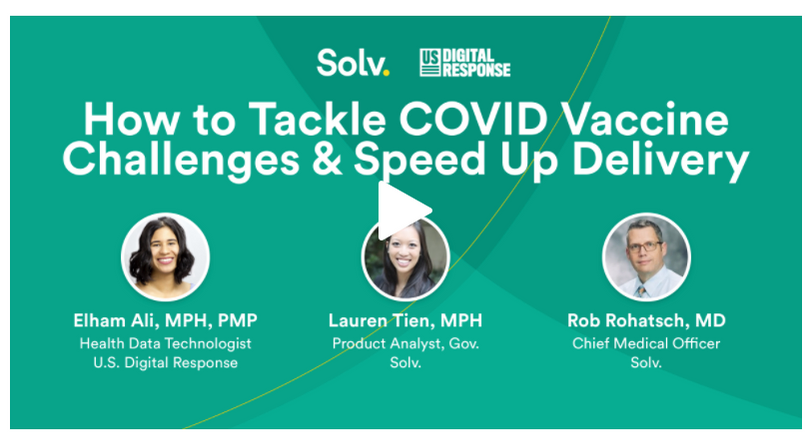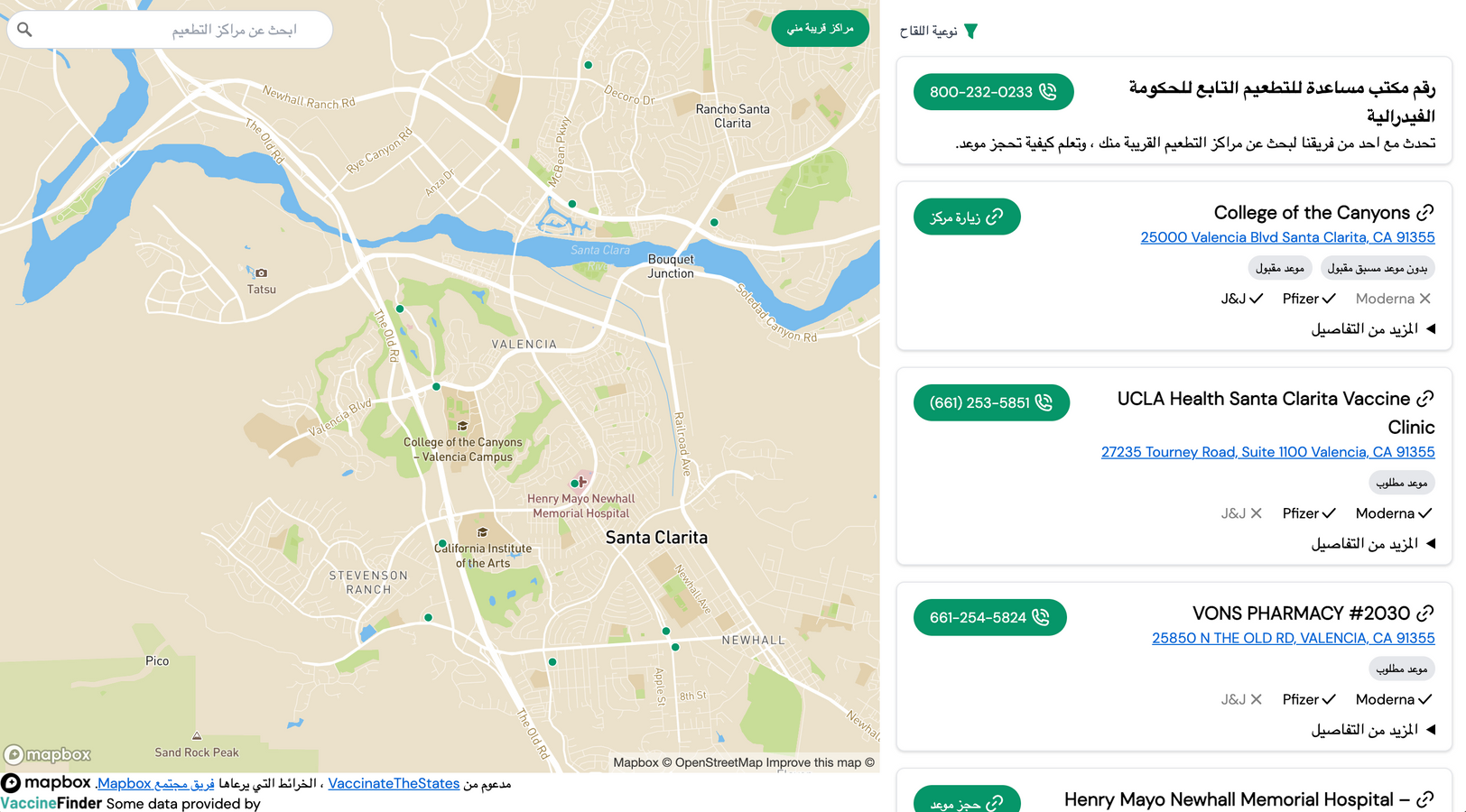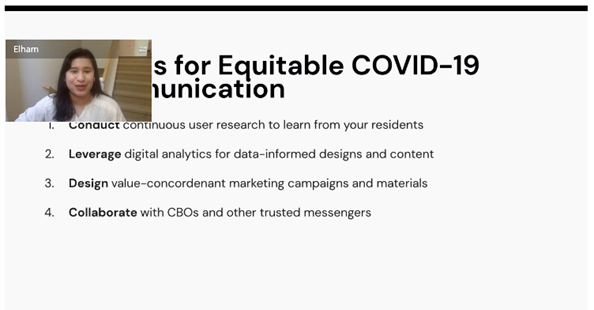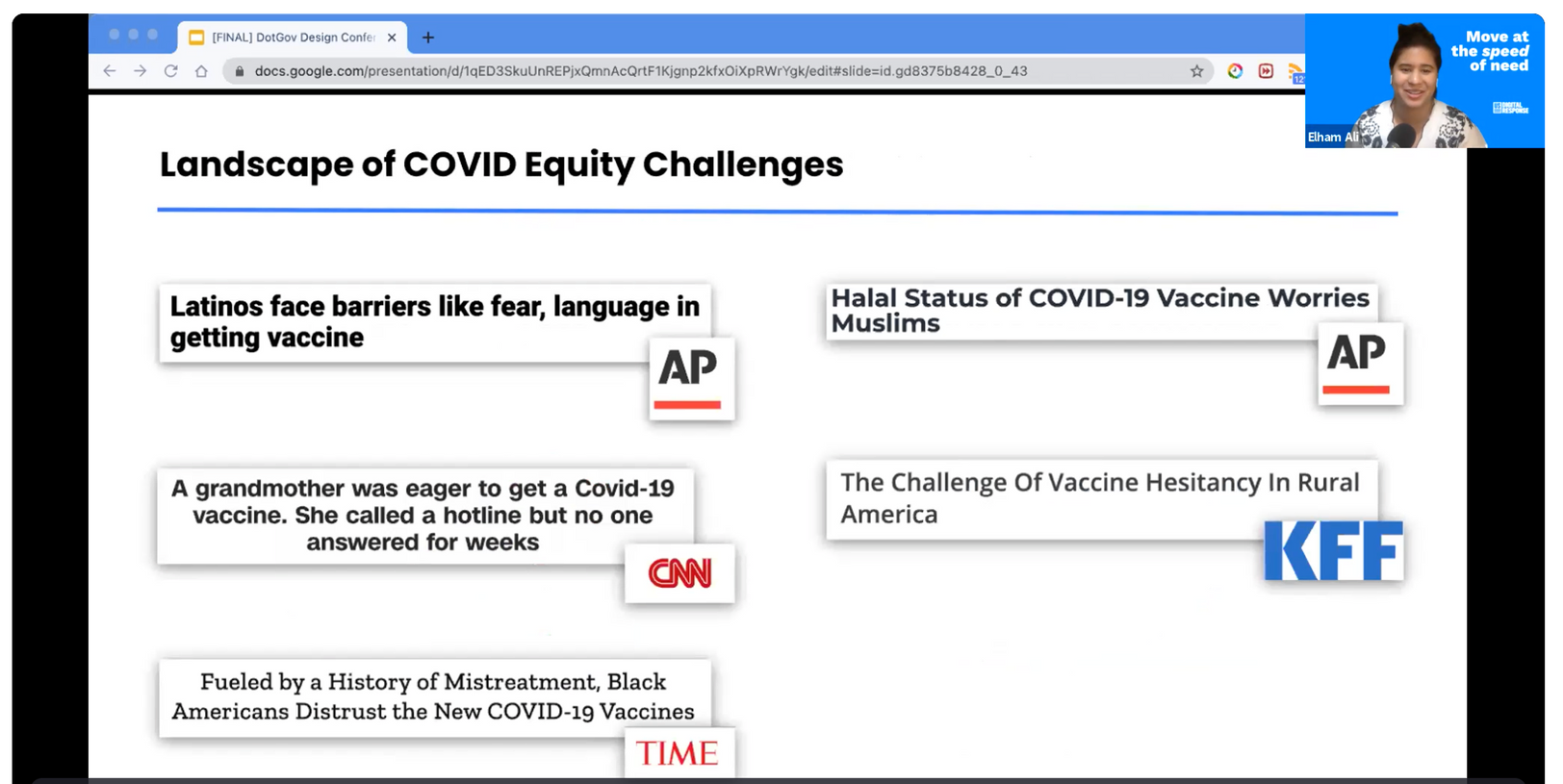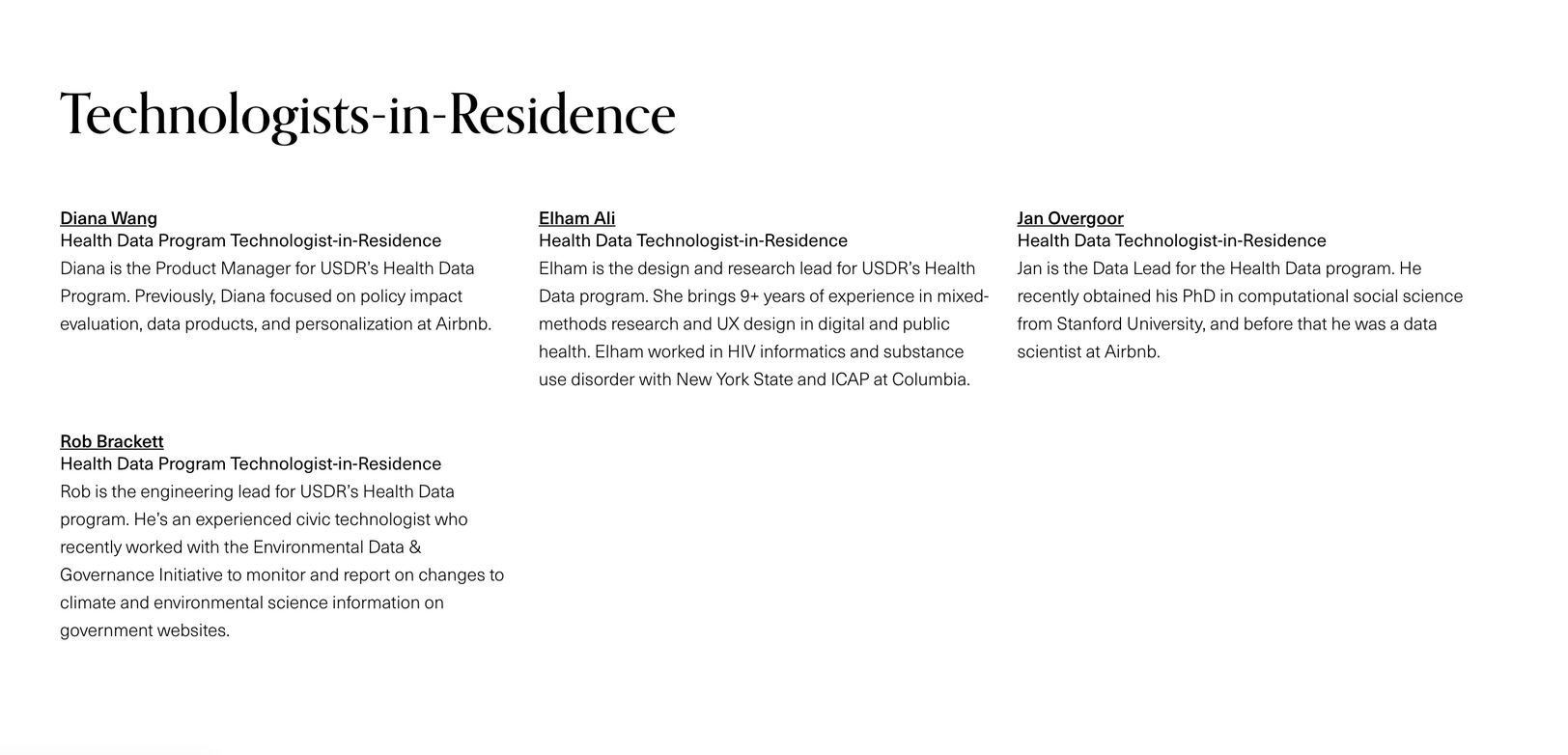Challenge
City, county, and state governments were inundated with thousands of complaints from residents who were confused about their eligibility for the COVID-19 vaccine, how to access vaccination clinics, and where to sign up. Public servants were overwhelmed by the sheer volume of support tickets and calls from residents struggling to navigate the available resources. The lack of clear, accessible information not only created frustration among the public but also highlighted significant digital equity gaps that needed to be addressed for more effective communication and service delivery.
To help solve these challenges, U.S. Digital Response (USDR) partnered with governments, nonprofits, and public entities to respond to critical public needs by rapidly activating highly-skilled talent. As the Research and Design Lead/Technologist-in-Residence for the Health Program at the height of the pandemic, I led efforts to build accessible vaccination portals and websites for local and state governments. Many existing websites failed to meet accessibility standards and conveyed complex health information that hindered communities, especially those harder to reach, from easily booking vaccination appointments. My role focused on creating user-friendly, equitable digital experiences that enabled governments to communicate effectively with all residents and close the digital equity gaps.
Approach
I led over 19 projects in seven months with cities, counties, state governments, health departments, agencies, and community-based organizations to create equitable and accessible website designs and content using health literacy, plain language guidelines, and crisis communication. I managed more than 30 volunteers to deliver evidence-based research, including comparative analysis, contextual inquiry, usability testing, interviewing, and survey analysis, increasing governments’ confidence and connection with their communities. I implemented cognitive biases in writing and communication to influence health and care-seeking behaviors in social media posts and patient education brochures. I developed, edited, and gathered information to create clear, concise, and compelling materials for key stakeholders and audiences, including press releases, speeches, blogs, op-eds, backgrounders, talking points, scripts, reports, stories, and website copy. I built governments’ capacity to integrate literacy and equity into digital media through website templates and a toolkit.
Results
Read about USDR’s Health Program accomplishments here. My contributions are highlighted in the “Website Usability, Communication, and Equity” section, which includes:
Various speaking engagements at events like the American Public Health Association during National Public Health Week and the DotGov Conference.
COVID-19 Vaccine Website Template: A Medium article announcing the launch of a vaccination website template, ready for government partners to deploy within days.
Improving Vaccine Info Webpages with Updated Content and Design for Pueblo County, CO: A case study on redesigning Pueblo County’s COVID vaccine and testing webpages using user experience and equity design principles.
COVID-19 Communication Toolkit: A Health Equity Lens: A step-by-step guide to help health communicators, content developers, educators, and designers implement health equity in COVID-19 communication.
How to incorporate equity into your health communications efforts: Key takeaways from applying equity-focused design in COVID communications with government partners.
Testimonial
“Elham was a Technologist-in-Residence for USDR’s Health Program. Elham brought a combination of expertise, energy, kindness and joy to the role. Her domain expertise in healthcare equity allowed her to support many of our government partners improve their vaccine outreach efforts. Her energy and her skill at project management allowed her to scale up her efforts to leading a large team of volunteers while simultaneously creating reusable artifacts and speaking at a number of events to evangelize her work. Her kindness and joy made it a pleasure to work with her as a team member, pitching in wherever she could and ensuring a smooth transition as she ramped down from the six month technologist-in-residence role.”
- Alex Allain, Co-Founder and CTO at U.S. Digital Response
“Working with Elham is the single best thing we could have done to yield better outcomes and increase the impact of our project. Elham served in an advisory capacity, bringing a wealth of experience and knowledge as an experienced HCD practitioner to help assist in drafting effective research plans. She was also instrumental in the development of impactful HCD Design Sprint facilitation tools, and she provided effective insights and guidance around data synthesis and analysis. I was particularly impressed by her ability to produce quality work, despite time constraints and managing other projects. This was a high-visibility project that will certainly influence the operational culture of our agency, and we can attribute these successes to our partnership with this amazing UX Researcher. Elham would be an asset to any project team.”
- Andrea Ownbey at Oklahoma Department of Human Services
Citation
@online{ali2021,
author = {Ali, Elham},
title = {U.S. {Digital} {Response}},
date = {2021-09-30},
url = {https://www.elhamyali.com/},
langid = {en}
}
